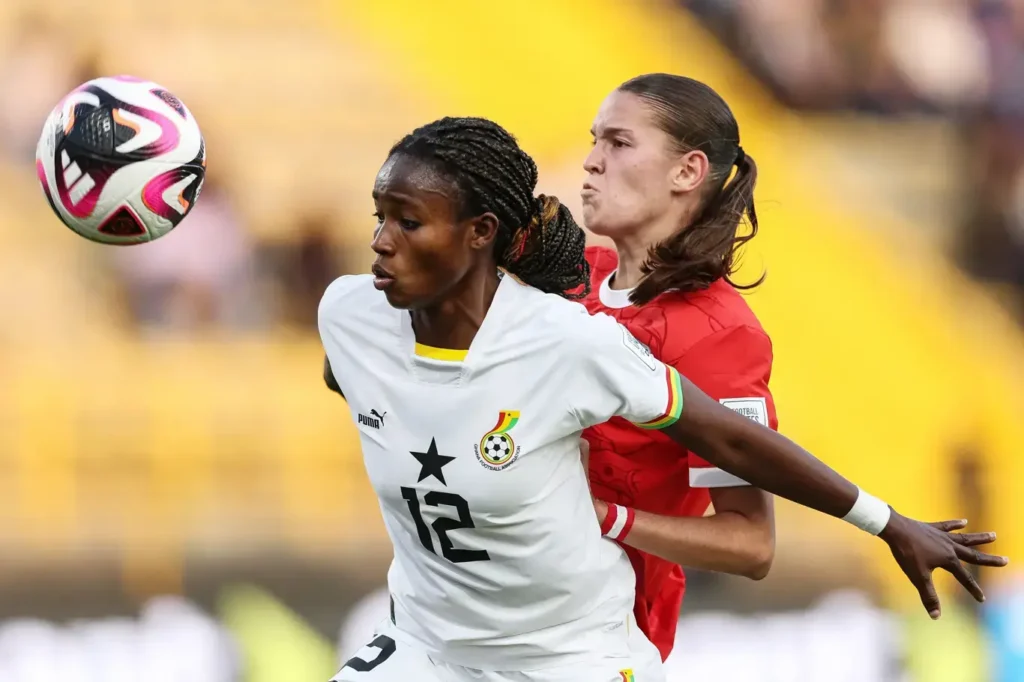In October 2016, Ghana’s Under-17 national team, the Black Maidens, returned to Ghana after losing in the quarter-finals of the Under-17 Women’s World Cup in Jordan.
Usually, the standard procedure is for the team to stay at a local hotel, debrief, and then return to their respective locations.
But that did not happen.
Instead, something unusual transpired: They refused to vacate their hotel. The team demanded compensation for their qualifying bonuses and per diems from the country’s sports ministry, which had yet to disburse the funds.
Their head coach, Augustine Adotey, supported the move, stating that the team had been “deserted” throughout the tournament by the Ministry of Youth and Sports.
“We won’t leave the hotel. We were promised [compensation] before we left for Jordan, and yet we didn’t see anyone from the Sports Ministry,” he said.
That was not the first time a female sports team had resorted to this form of protest to demand compensation.
In September 2015, the country’s female senior football team, the Black Queens, won gold at the All-Africa Games. The team was expected to receive a $5,000 payout for each team member as a reward for winning the tournament.
However, the Ministry of Sports only offered $2,000.
In protest, the team refused to vacate their hotel in Accra, with team captain Mercy Myles demanding their right to payment.
The Ghana Football Association (GFA) stepped in and covered the hotel bills and eventually paid the players what they had initially asked.
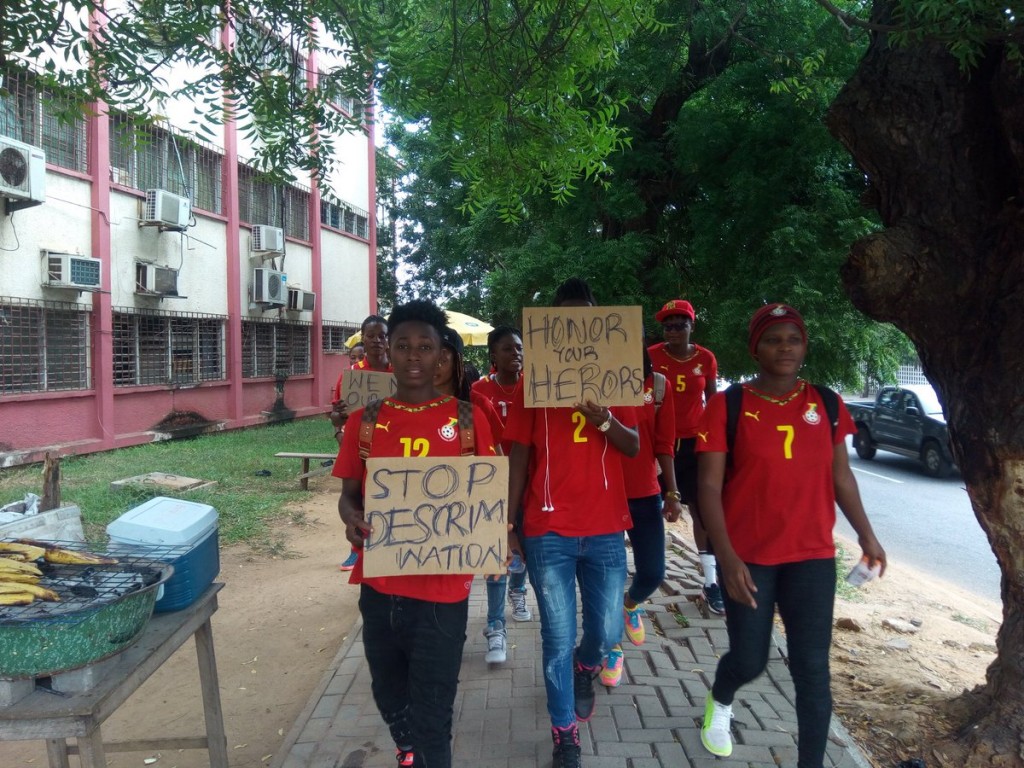
Over the years, women’s sports in Ghana have not been given as much attention or monetary rewards as their male counterparts.
Despite the potential and achievements of Ghanaian female athletes over the years, cultural biases, structural inefficiencies, and unequal resource allocation continue to hinder the growth and visibility of women’s sports.
Inequality In Distribution of Resources
Ghana’s sports culture has long been male-dominated. Football, the country’s most popular sport, clearly shows this divide.
Despite inconsistent performances in recent years, the Black Stars—Ghana’s senior men’s national football team—continue to attract significant media attention, government backing, and corporate sponsorship.
The Black Stars continued to be rewarded with performance bonuses, with figures reaching $10,000 per player. This is despite the team’s world ranking having declined for a decade.
In contrast, the Black Queens, the women’s national football team, are often given meagre attention and insufficient support from the GFA.
Nora Häuptle, the head coach of the Black Queens from 2019 to 2024, was noted to have declined a contract renewal with the team after negotiations broke down.
According to sources, Ms. Häuptle was offered a $6,000 monthly salary and a $5,000 bonus in preparation for the Women’s Africa Cup of Nations (AWCON) in Morocco in June 2025.
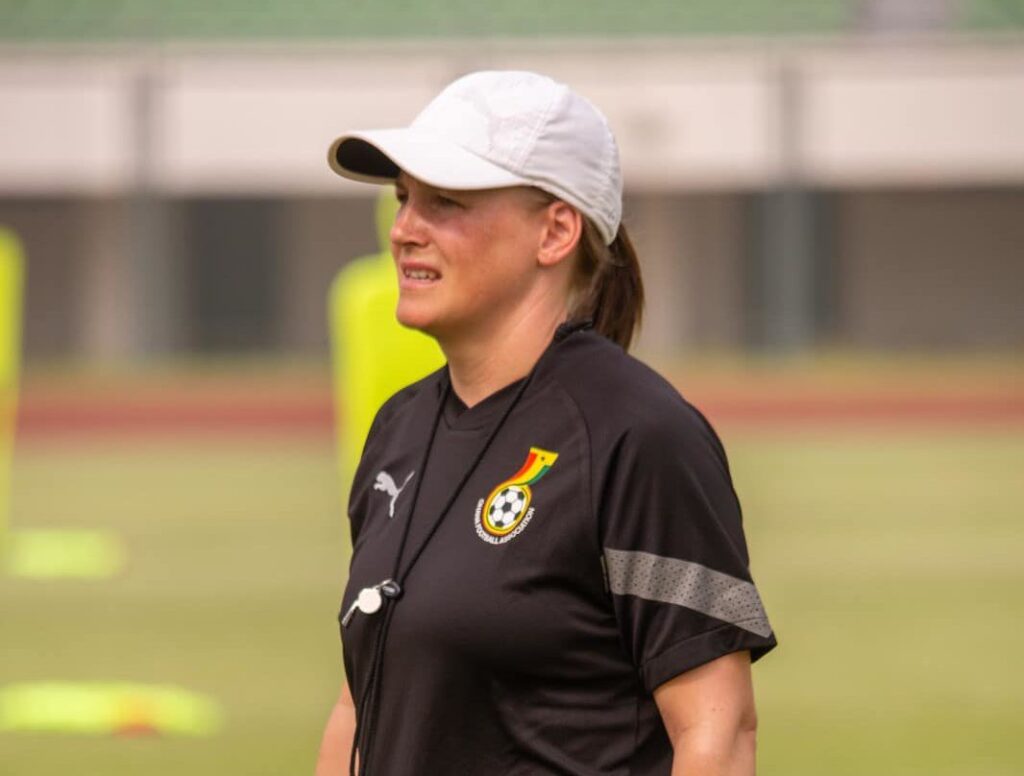
But Ms. Häuptle declined, seeking compensation of $12,000 instead.
Sources also noted that the former head coach had grown “frustrated” with the GFA’s inability to support her team’s preparation, citing a lack of resources and unmet demands.
Meanwhile, the current head coach of the men’s senior team, Otto Addo, signed a three-year contract extension reportedly worth $50,000 per month.
This is despite the team missing out on the African Cup of Nations (AFCON) tournament for the first time in 20 years.
A 2018 post on the social platform X (formerly Twitter) by sports journalist Saddick Adams noted that between 2008 and 2018, FIFA invested over $2 million in women’s football in Ghana.
In comparison, an estimated $20-30 million has been invested in the Black Stars from 2008 to 2012, covering sponsorships, prize money, government support, and infrastructure.
Even with player performance bonuses, huge disparities exist between the men and women.
In 2023, the male football players received an estimated $30,000 each as a bonus for their performance in the 2023 African Cup of Nations tournament.
Meanwhile, their female counterparts received their player bonuses of $7,500. This was after rumors that the team planned to boycott due to delayed payments.
Even though Ghana’s National Sports Policy promotes equal opportunity and resource allocation, there is no specific funding mechanism designed for women’s sports.
Is Culture To Blame For the Large Disparity In Female Sports?
Funding is not the only issue facing women’s sports in the country. There are still negative cultural perceptions of women participating in sports.
A 2023 study, “Participation of Girls and Women in Community Sport in Ghana: Cultural and Structural Barriers,” stated that cultural norms still existed, preventing women from participating in sports.
The report noted that there are still beliefs that sports are “masculine” activities, leading to fears that girls who participate may develop “male features” or face challenges in childbirth.
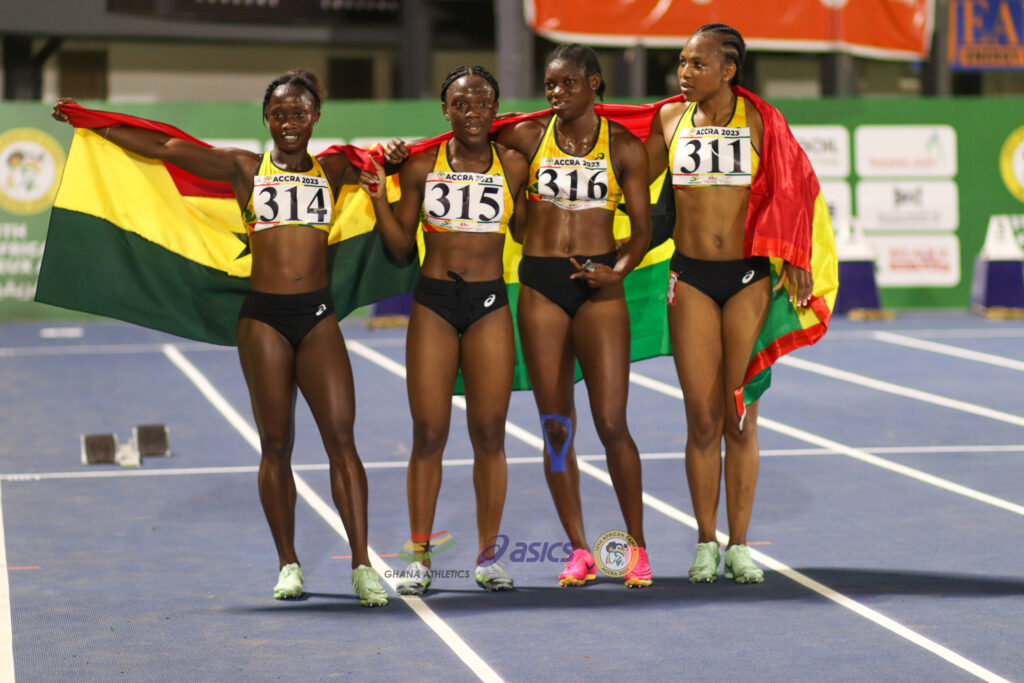
In certain regions of the country, there are persistent societal pressures that lead to early marriages and pregnancies, curtailing girls’ involvement in sports.
The report also highlighted the underrepresentation of women in sports leadership. It emphasized how the scarcity of female coaches and administrators limits role models who could inspire greater participation.
Ghana’s first female boxing champion, Abigail Kwartekaa Quartey, shared how her family tried to dissuade her from joining the sport.
“My aunts and siblings didn’t like it when I started boxing. They would come here to beg my coach not to let me become a boxer,” she said in an interview with the Associated Press.
Female Sports Are Gaining More Traction Worldwide
Globally, women’s sports are gaining traction, with viewership and sponsorship soaring to new heights.
In 2023, a record 46.7 million viewers in the UK watched women’s sports on TV, surpassing the previous high set in 2019.
The 2024 FIFA Women’s World Cup final between England and Spain attracted a peak UK audience of 14.8 million viewers across BBC One and ITV1, with an average of 13.3 million.
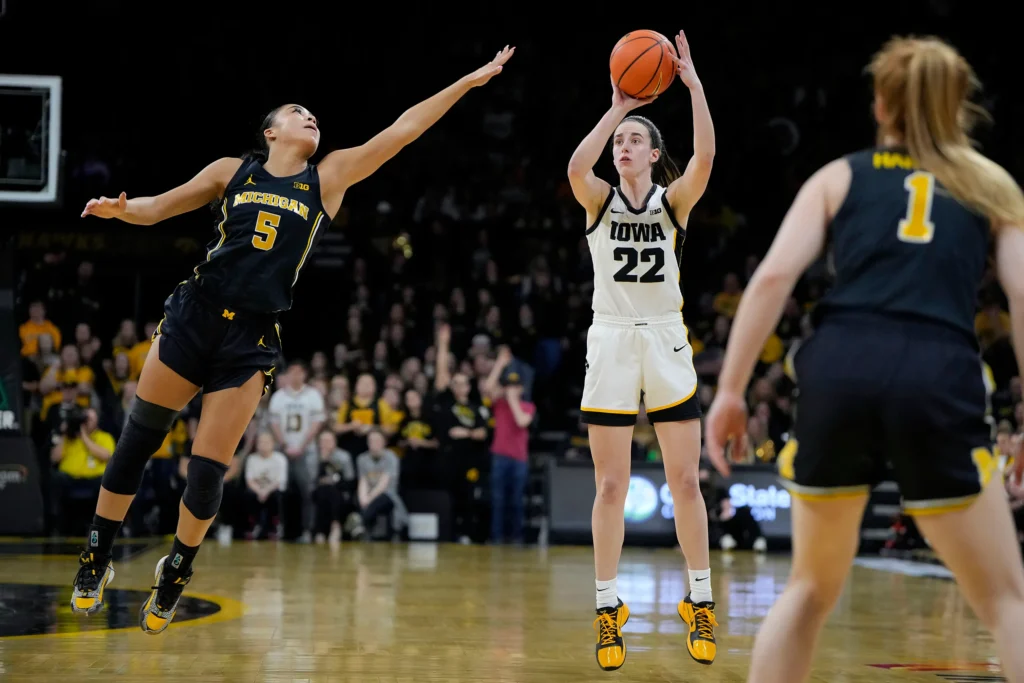
In the United States, the 2023 National Collegiate Athletic Association (NCAA) women’s basketball final drew nearly 10 million viewers, up 103% from the prior year, according to Nielsen, a data and market measurement company known for its TV ratings and audience measurement service.
As women’s sports continue to grow in popularity, brands are endorsing more female athletes.
Last year, US Women’s Basketball star A’ja Wilson debuted her first signature basketball shoe, the Nike A’One, with popular sports brand Nike.
Reports estimated that the deal is worth over $20 million.
There have also been record deals in Africa in female sports.
In 2024, female Zambian striker Racheal Kundananji signed a record transfer deal with Bay FC for a reported $788,000.
She became the most expensive player in women’s football history at the time.
Local media houses like CitiFM and Multimedia Group could carve out spaces in their programming to offer exclusive coverage of female sports in Ghana.
The Path Forward For Female Sports in Ghana
More coverage of female sports could help boost the visibility of women’s sports in Ghana.
ESPN, one of the biggest sports media platforms in the US, has a section called ESPNW, which exclusively showcases news stories and features on women’s sports and athletes.

Local media houses including CitiFM and Multimedia could carve out spaces in their programming to offer exclusive coverage of female sports in Ghana.
Policy-wise, the Ministry of Sports and Recreation could do more to prioritize equitable funding for female athletes and their sports campaigns.
The current Minister, Kofi Adams, has publicly called for more effort to grow women’s football.
At an event for Ghana Women’s FA Cup, he emphasized the government’s commitment to supporting Women’s football, saying, “The government is committed to ensuring Women get the maximum support they need to reach their full potential and bring glory to the country.”
Whether this promise of support for women’s sports comes to fruition remains to be seen.
